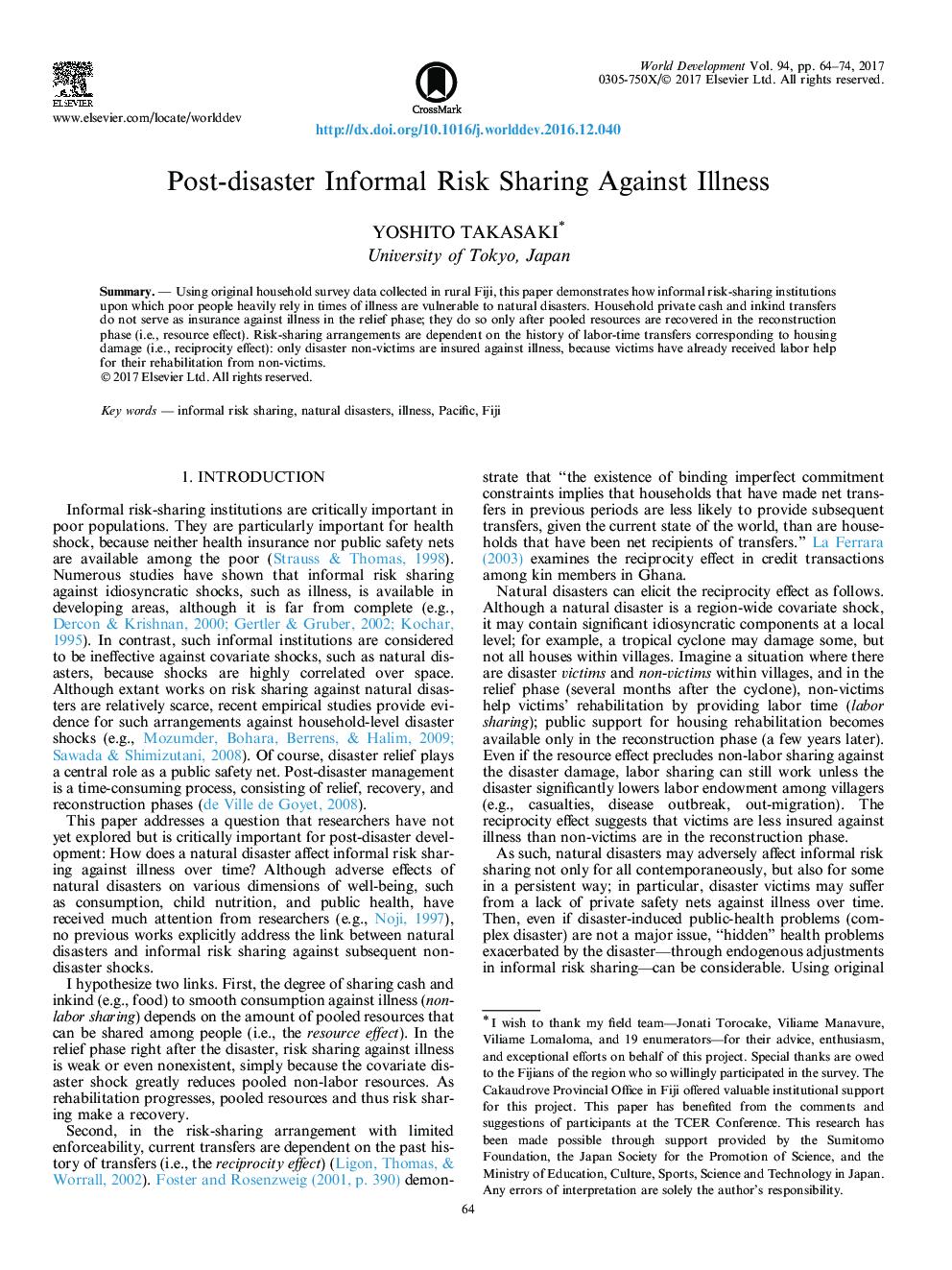| Article ID | Journal | Published Year | Pages | File Type |
|---|---|---|---|---|
| 5105203 | World Development | 2017 | 11 Pages |
Abstract
Using original household survey data collected in rural Fiji, this paper demonstrates how informal risk-sharing institutions upon which poor people heavily rely in times of illness are vulnerable to natural disasters. Household private cash and inkind transfers do not serve as insurance against illness in the relief phase; they do so only after pooled resources are recovered in the reconstruction phase (i.e., resource effect). Risk-sharing arrangements are dependent on the history of labor-time transfers corresponding to housing damage (i.e., reciprocity effect): only disaster non-victims are insured against illness, because victims have already received labor help for their rehabilitation from non-victims.
Keywords
Related Topics
Social Sciences and Humanities
Economics, Econometrics and Finance
Economics and Econometrics
Authors
Yoshito Takasaki,
